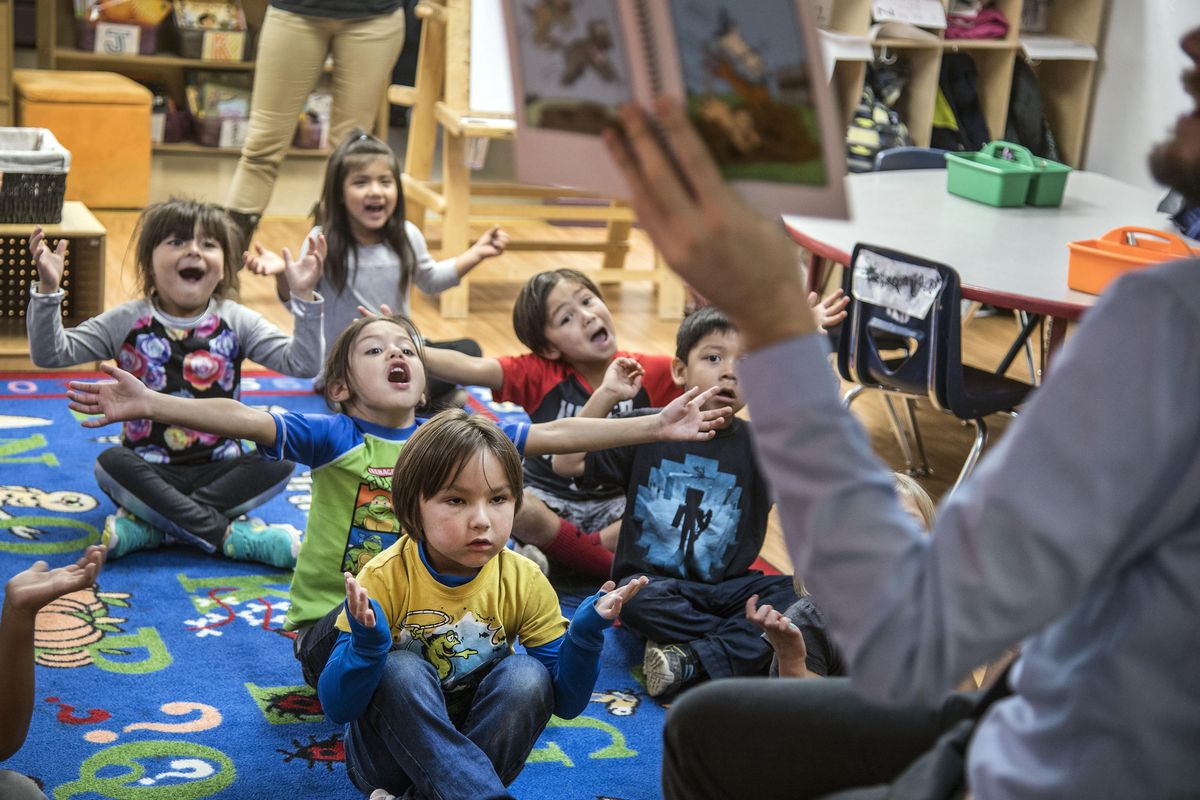Salish School plans revolutionary approach with $1 million grant

The Salish School of Spokane was one of five schools nationwide to receive a five-year, $1 million federal grant Thursday. And with that money it hopes to do something revolutionary.
“If we can pull it off, it’s going to offer a model for tons of reservation schools that just have terrible academic performance,” said school co-founder and Principal Chris Parkin. “Just because there is this huge disconnect between what the schools are trying to do and the culture of the community.”
The proposal that won the school the grant calls for all students to be enrolled in online public schooling. When the students have finished their online coursework, they will learn about the Salish culture, language and tradition, Parkin said.
“We are going to combine it (online learning) with the most old-school, traditional, transcendental cultural approach, and we think that is the future,” he said.
By integrating traditional cultural education with online education, Parkin thinks they can pioneer a new model of Native American education.
The money will be used to establish the Spokane Learning Center for Native Youth. The center will accommodate 25 students between ages 14 and 18, Parkin said.
“I’m pretty nervous,” he said. “But I’m excited about the project. It’s going to be a big lift for a small organization and a marginalized community.”
Parkin is nervous because the $200,000 to be awarded each year of the five-year grant must be matched with $50,000 raised locally, of which Parkin said the school will need to find $25,000. The school’s annual operating budget hovers around $1 million.
The grant money will pay for three new staff positions and provide stipends for youth cultural ambassadors and native elders. Every student entering the program can earn a $1,000 stipend per year, in exchange for acting as community leaders and mentors.
“Every time you grow, you have to invest,” said co-founder LaRae Wiley, a member of the Arrow Lakes Band of the Colville Confederated Tribes. “That growth is such an opportunity you can’t really say no.”
Parkin and Wiley, who are married, knew the grant would require matching funds when they applied. The Learning Center for Native Youth will allow the school to extend services to older children. Currently, the school only goes through fifth grade.
“It’s just so exciting,” Wiley said. “I’ve got to tell you, I have goose bumps.”
Taylor Birdtail, an associate teacher at the Salish School of Spokane, works with kindergartners and has taught at the small school for two years. The value of learning Salish, especially for older students, is immense.
“They will have a sense of belonging,” Birdtail said.
A member of the the Gros-Ventré tribe in Montana, she grew up in the Spokane area as an “urban native” and didn’t have a strong connection with her culture.
Wiley hopes to reach students just like Birdtail. Native students who connect with their culture are less likely to have drug or alcohol problems, and are more likely to attend college, she said.
“It makes a really big difference,” Wiley said.
The Salish School of Spokane, which opened in 2010, is the only full-time, off-reservation Native American language immersion school in the continental U.S.
The all-day school teaches all subjects in Salish, an indigenous language. Spokane Salish, a dialect taught at the school, has only five first-language speakers left, Parkin said. These speakers are tribal elders who traditionally have been the sole repositories of Native American culture and history.
There are 69 students enrolled this year, with 27 full-time staff members. The school costs between $2,750 and $7,000 per year, depending on financial need. It’s open to anyone, although there is a waiting list for each program except kindergarten.
At 2 p.m. Nov. 13, the school will hold its annual auction at the Philanthropy Center, 1020 W. Riverside Ave. The event is open to the public.